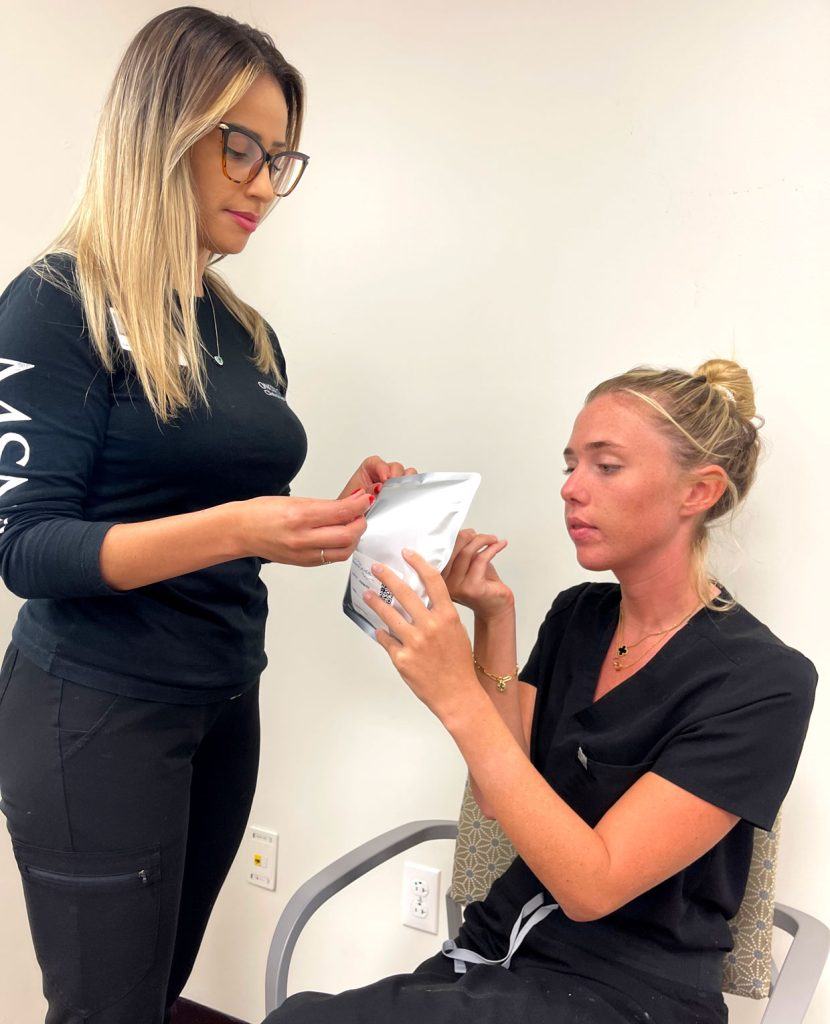Mount Sinai Medical Center’s Comprehensive Cancer Center Leads International Clinical Trial on the Early Detection of Breast Cancer by Examining Organic Compounds in Breath
Steven N. Hochwald, MD, the director of the Comprehensive Cancer Center and chief of surgical oncology at Mount Sinai Medical Center, is leading an international clinical trial that examines organic compounds in the breath to detect early onset breast cancer. The Israeli-founded developer Breath of Health (BOH) brings its breath-based technology to Mount Sinai, which offers quick, noninvasive diagnostics for prospective breast cancer patients.
In the United States, an estimated 249,260 new cases of breast cancer were diagnosed in 2018 and remains the most prevalent malignancy among women. More than two million cases were diagnosed worldwide in the same year, with over 600,000 deaths. The prognoses in patients with breast cancer depended mainly on the stage of the disease.
Early diagnosis and appropriate therapy can effectively reduce the mortality of breast cancer. There are several adjuvant screening methods for breast cancer (e.g. mammography, ultrasonography, digital breast tomosynthesis [DBT], and magnetic resonance imaging [MRI]). However, the accuracy of these methods largely relies on the physicians’ experience, the stage of the disease, and the histopathologic features of the tumor. As a result, there may be a misinterpretation or a misdiagnosis.
It is estimated that only 60% of women follow the established guidelines for breast cancer screening, with a large percentage of women opting not to be screened. This is due to discomfort of the mammography, ultrasound, or MRI exam, as well as the lack of privacy, the excessive cost, and the inconvenience.
“Exhaled breath analysis has increasingly been adopted for early diagnosis of several disease states, including diabetes,” explains Dr. Hochwald. “With the rapid development of exhaled breath metabolomics in recent years, the association between volatile organic compounds (VOCs) of exhaled breath and cancer has attracted increasing attention.”
Breath VOC analysis is appropriate for disease screening because it is noninvasive, portable, inexpensive, and easy for patients to accept. The technique also has the potential for early diagnosis.
The planned clinical trial will compare the presence and type of organic compounds in the breath of patients with precancerous breast conditions (carcinoma in situ) and those with biopsy-proven breast cancer to those with normal mammography examinations and no evidence of breast cancer. Enough patients will be enrolled to determine if different breast cancer subtypes and stage at diagnosis correlates with specific signatures of organic compounds in the exhaled breath. The goal is to develop an exhaled breath test that can detect precancerous abnormalities as well as the type and stage of breast cancer.
The breath sample is collected in an aluminum bag, then processed by reducing the temperature to minus 20 degrees Celsius for at least three minutes, eliminating approximately 80% of the liquids. The bag is then processed using their aerosol generator, which generates droplets of 5 to 15 microns that go through the optical gas cell. The original detection is 200 parts per billion, but the company has managed to reduce it to one part per trillion.
Breath of Health’s machine is a stand-alone system that only requires electricity to complete a breath analysis and deliver results, meaning its services can be of great benefit to those in remote areas without access to hospitals with mammography units.
“The technology is inspired by Breath of Health’s focus on humanity,” says Arie Laor, the founder of Breath of Health. “With its non-invasive screening platform and low-cost testing, we aim to improve existing cancer screening programs and save lives.”


